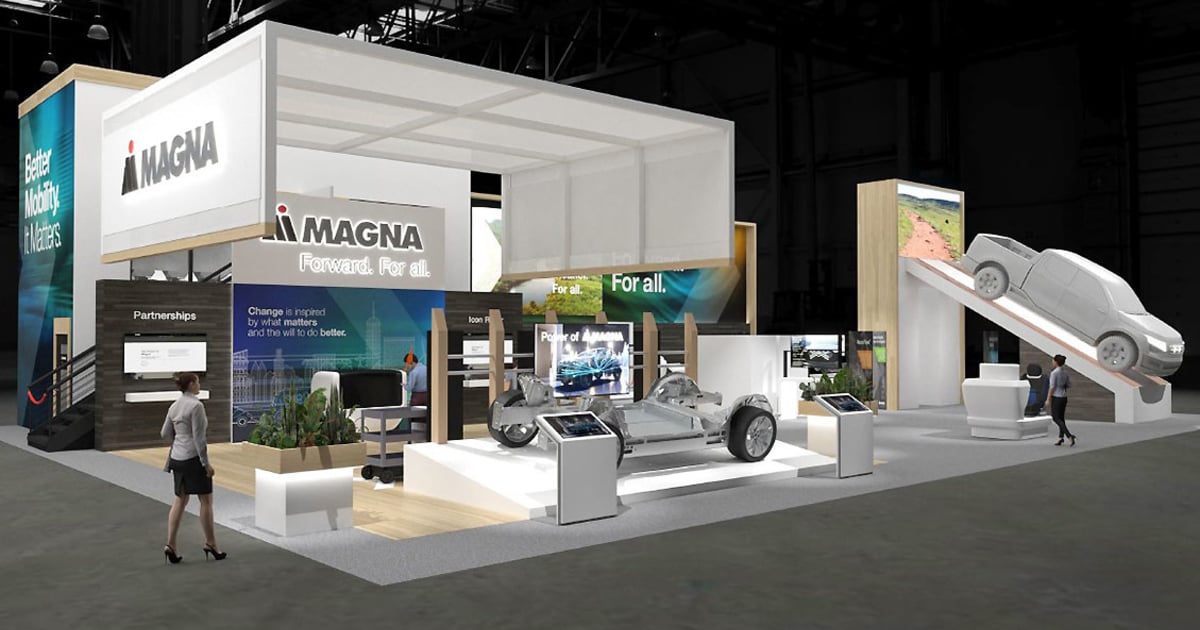
Much has changed for auto suppliers in the three years since they last converged at a fully in-person CES in Las Vegas.
The impact of the COVID-19 pandemic, the seemingly endless list of sourcing challenges the industry has dealt with and the accelerating shift to electric vehicles have forced suppliers to reexamine their supply chains and contemplate what role they should play in this new world.
And CES provides a broad venue for suppliers to lay out their visions of what they’ll look like moving forward.
CES “has been a major focus point for innovations and the latest technologies for many years, and its importance has long since extended beyond consumer electronics,” Yves Andres, a member of the Hella management board, said in a statement.
Major suppliers at CES this year, including Robert Bosch, ZF Group, Continental and Valeo, will hold press conferences detailing future endeavors.
Others will also be on the show floor and at nearby hotels and resorts, hosting customers and journalists at booths showcasing their new technologies during the event this week.
Magna International Inc., North America’s largest parts supplier, returns to CES looking to show off its latest innovations in driver assistance and electrification technology.
Magna’s CES booth will include the first public display of its “morphing surfaces” technology, the company said. The system, which will be displayed on a front panel, can “change the exterior shape of a vehicle and adapt to improve efficiency and functionality,” the company said.
Likewise, it will show off its SmartAccess technology, which it said “eliminates the need for a B-pillar, improving accessibility to the main cabin.”
“The automotive landscape is rapidly evolving, and CES allows us to kick off the new year by asserting our prime position in making future-ready solutions a reality,” Eric Wilds, Magna chief sales and marketing officer, said in a statement.
Hyundai Mobis will have its largest CES display in its history, with concept vehicles that impart its vision for the future.
The M.Vision TO vehicle features an autonomous driving system comprising cameras, radar and lidar, as well as seats that can be folded and rotated to take advantage of the absence of a driver. Hyundai’s M.Vision HI is designed to signal how future cars can be used for “leisure, relaxation and outdoor activities,” including by using the glass on the vehicle as a movie screen.
The supplier will also show off 19 other technologies, including an LED grille lighting system and swivel display technology, which Hyundai said can move a 32-inch display within a vehicle vertically.
With sales to automakers of $29.07 billion in 2021, Hyundai Mobis ranks No. 6 on the Automotive News list of the world’s largest auto suppliers.
This will be the first CES for Forvia, the company formed by Faurecia’s acquisition of Hella in February.
The French company is the world’s seventh-largest parts supplier, with worldwide parts sales to automakers of $25.88 billion in 2021. It will showcase 16 products related to electrification, automated driving and digital cockpit solutions at its CES booth.
Among those technologies will be its SSL HD headlamp system, which it said provides better illumination on the road while reducing the amount of space required for installation by up to 75 percent. The system was the recipient of a CES 2023 Innovation Award.
“We are driven by the ambition to keep pushing the boundaries of what is feasible in automotive lighting technology and thus ensure greater safety, efficiency and comfort in road traffic,” Andres, of the Hella management board, said.
Marelli, the world’s 20th-largest supplier, will use CES to showcase its Diorama Display technology, among other new products. According to Marelli, the head-up display “provides high-quality reflections on the bottom edge of the windshield” and “clear visibility and readability” for navigation indications or hazard warnings.
The supplier said its technology provides for a “much larger” viewing angle than a typical head-up display and can use the windshield to display information for passengers as well as the driver.
CES represents an opportunity for Marelli to turn its eyes to the future after a bumpy 2022. The Japanese supplier, saddled with billions of dollars in debt, entered into a court-led restructuring in June that was completed in August. It is a major supplier to automakers including Nissan and Stellantis.
The Automotive Parts Manufacturers’ Association, which represents suppliers in Canada, will unveil its autonomous, electric Project Arrow crossover at the show after years of development.
Project Arrow is a collaboration among 58 Canadian companies to build a vehicle made almost entirely with parts made within the country. It was built at Ontario Tech University, about 40 miles east of Toronto.
According to the APMA, participants in the project include Martinrea International Inc., Dana TM4, Michelin and Toyota Canada.
As supply chains are redrawn in the wake of electrification and trade pressures, the project is designed to draw attention to what can be done in Canada, APMA President Flavio Volpe said.
“We’re building one car. But we’re going to show everybody that we have everything that they have in Silicon Valley to have a startup culture,” Volpe told Automotive News Canada this year.